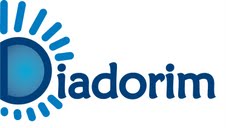EXPERIENCES OF PRIMARY CARE PRECEPTORS ABOUT THE PRACTICE OF POPULAR HEALTH EDUCATION
Experiences of Popular Health Education in Primary Care
DOI:
https://doi.org/10.13037/ras.vol22.e20249597Keywords:
Health Education, Mentors, Primary Health CareAbstract
INTRODUCTION: Popular Health Education (EPS) constitutes a practice aimed at creating spaces for sharing knowledge and experiences between professionals and users, privileging horizontal relationships. OBJECTIVE: analyze the experiences of professional preceptors working in Primary Care regarding the practice of EPS. METHODOLOGY: This is an exploratory study, with a cross-sectional and qualitative nature, developed with 15 professionals from different areas, who work in a city in the interior of PE. The research was approved by the CEP under opinion number 5.820.014 and semi-structured interviews were used, analyzed using Bardin's Content Analysis. RESULTS: Three categories of analysis were established: (1) Conceptualizing Popular Health Education; (2) Experiences of Popular Health Education and (3) Potentials and weaknesses for the development of actions. Participants reported that the practice of EPS reveals itself as a significant tool for the promotion and protection of health, through the sharing of knowledge between professionals and the community, strengthening bonds and enabling the provision of comprehensive and resolute care. Despite the benefits, some difficulties are encountered in implementing this practice, such as the lack of interest from the community, the lack of adequate infrastructure and support from the Municipal Health Department. CONCLUSIONS: The results of this research allowed a more in-depth understanding of the EPS practices carried out by the participants, in addition, it provided information that can be used to prepare materials designed to assist preceptors in planning and executing actions based on EPS.
Downloads
References
Cruz PJSC. Educação popular em saúde: desafios atuais. São Paulo: Hucitec, 2018.
Raimondi GA, Paulino DB, Neto JPM, et al. Intersetorialidade e Educação Popular em Saúde: no SUS com as Escolas e nas Escolas com o SUS. Rev. bras. educ. med. 2018; 42(2): 73-78.
Brasil. Ministério da Saúde. Gabinete do Ministro. Portaria n. 2.761, de 19 de novembro de 2013. Institui a Política Nacional de Educação Popular em Saúde no Âmbito do Sistema Único de Saúde (PNEPSSUS). Disponível em: < https://bvsms.saude.gov.br/bvs/saudelegis/gm/2013/prt2761_19_11_2013.html> Acesso em: 07 nov 2023.
Fernandes RS, Fank EI, Mendes LEF, et al. Potencialidades da Educação Popular em tempos de pandemia da Covid-19 na Atenção Primária à Saúde no Brasil. Interface (Botucatu) [Internet]. 2022;26: 1-16
Coelho MGM, Machado MFAS, Bessa OAAC, et al. Atenção Primária à Saúde na perspectiva da formação do profissional médico. Interface (Botucatu). 2020; 24: 1-15
Cosme FSMN, Valente GSC. Educação permanente na práxis de preceptoria em Atenção Básica de Saúde. Research, Society and Development, 2020; 9 (8):1-21.
Fontanella BJB, Ricas J, Turato ER. Amostragem por saturação em pesquisas qualitativas em saúde: contribuições teóricas. Cadernos de Saúde Pública. 2008; 24 (1): 17-27.
Bardin L. Análise de conteúdo. Lisboa: Edições 70, 2004.
Martins APL, Negro-Dellacqua M, Guedes, ALL, et al. Perfil dos profissionais da Atenção Básica no Município de Araranguá/SC. Research, Society and Development. 2020; 9 (8): 01-19
Geremia DS, Tombini, LHT, Vieira, LB, et al. Perfil e práticas dos enfermeiros da Atenção Primária à Saúde: relatos da região Sul, Brasil. Tempus - Actas de Saúde Coletiva. 2022; 16(4): 149-160
Bernieri J, Hirdes A, Vendruscolo C, et al. Fragilidades no cuidado em saúde mental: percepções de profissionais da Atenção Primária à Saúde em tempos de COVID-19. Research, Society and Development. 2021; 10 (12): 01-12.
Dias JVS, Amarante PDC. Educação popular e saúde mental: aproximando saberes e ampliando o cuidado. Saúde debate [Internet]. 2022;46(132):188–99.
Freire P. (2014). Pedagogia da autonomia: saberes necessários à prática educativa (48a ed.). Rio de Janeiro: Paz e Terra
LIMA, LO, Silva MRF, Cruz PJSC, et al. Perspectivas da Educação Popular em Saúde e de seu Grupo Temático na Associação Brasileira de Saúde Coletiva (ABRASCO). Ciência & Saúde Coletiva. 2020;25(7):2737-42
Bernardo, K., & Carneiro, P. Concepções e referenciais da educação popular: a sistematização de experiências de seus protagonistas na Paraíba. Praxis & Saber. 2022; 13(32), e12261. https://doi.org/10.19053/22160159.v13.n32.2022.12261
Bersot DC, Oliveira BM, Guimarães MCS. Pane no sistema: inquietações e reflexões sobre a importância da Educação Popular em Saúde em tempos pandêmicos. Bol Inst Saúde. 2022; 23(2): 93-103
Brasil. Ministério da Saúde. Gabinete do Ministro. Portaria n. 2.436, de 21 de setembro de 2017. Aprova a Política Nacional de Atenção Básica, estabelecendo a revisão de diretrizes para a organização da Atenção Básica, no âmbito do Sistema Único de Saúde (SUS). Disponível em: < https://bvsms.saude.gov.br/bvs/saudelegis/gm/2017/prt2436_22_09_2017.html> Acesso em: 07 nov 2023.
Rocha AA, Cunha CM, Lehn LF, et al. A sala de espera como estratégia na produção de educação em saúde durante a pandemia de COVID-19. Brazilian Journal of Health Review, Curitiba. 2022; 5(1): 1200-1212
Dias VP, Silveira DP, Witt RR. Educação em saúde: o trabalho de grupos em atenção primária. Rev. APS. 2009; 12(2): 221-227
Menezes KKP, Avelino PR. Grupos operativos na Atenção Primária à Saúde como prática de discussão e educação: uma revisão. Cad. Saúde Colet., 2016; 24 (1): 124-130
Mentrup S, Harris E, Gomersall T, et al. Patients’ experiences of cardiovascular health education and risk communication: a qualitative synthesis. Qualitative Health Research. 2020; 30 (1): 88-104.
Andrade YS, Azevedo LMG, Santos LE, et al. Educação em Saúde na Sala de Espera: espaço de produção de cuidado e trabalho interprofissional. Saúde em Redes. 2021; 7(supl.2)
Lustosa SB, Lima RIM, Damasceno OC, et al. Letramento funcional em saúde: experiência dos estudantes e percepção dos usuários da atenção primária. Rev bras educ med. 2021;45(4): 01-09
Carvalho MR, Sá ANP, Morais JD, et al. Atuação da fisioterapia em grupo operativo na Atenção Básica: relato de experiência. Rev. Ed. Popular. 2020; 20: 144-59.
Rossetto M, Grahl F. Grupos educativos na Atenção Básica à Saúde: revisão integrativa de literatura de 2009 a 2018. Research, Society and Development. 2021; 10(10): e174101018561.
Araújo RS, Cruz PJSC, Vasconcelos ACCP, et al. Educação Popular na atenção primária à saúde: sistematização de experiências com grupos comunitários de promoção da saúde. Revista Conexão UEPG. 2021; 17, e2115270: 01-22
Silva RR, Martins JDN, Carvalho DNR, et al. O uso de metodologias ativas para educação em saúde sobre aleitamento materno: relato de experiência. Revista Eletrônica Acervo Saúde / Electronic Journal Collection Health. 2020;12(10): 2-6. Disponível em: https://acervomais.com.br/index.php/saude/article/view/3717/2337.
Azevedo PR, Sousa MM, Souza, NF, et al. Ações de educação em saúde no contexto das doenças crônicas: revisão integrativa. Rev. Pesqui. (Univ. Fed. Estado Rio J., Online).2018; 10(1): 260-267.
Oliveira Junior JB, Wachholz LB, Manske GS, et al. Promoção da saúde através da educação popular e práticas corporais: potencializando o cuidado e fortalecendo os vínculos sociais. Motrivivência, (Florianópolis). 2020; 32 (62): 01-15.
Bay AA, Prizer L, Orusa A, et al. Effects of a health education and research participation enhancement program on participation and autonomy in diverse older adults. Gerontology and Geriatric Medicine, [s. l.], 2020; v 6.
Lopes EFB, Silva, LSA, Rotta CS, et al. Educação em saúde: uma troca de saberes no combate ao estigma da hanseníase. Braz. J. of Develop. 2020; 6(2): 5350-5368.
Nascimento AG. Cordeiro JC. Núcleo Ampliado de Saúde da Família e Atenção Básica: análise do processo de trabalho. Trab. Educ. Saúde. 2019; 17(2), p 1-20.
Jara O. Desafíos para la Educación Popular en América Latina hoy. Interface (Botucatu). 2020; 24
Downloads
Published
Issue
Section
License
Copyright (c) 2024 Alaíde Silva, Suélem Lorena

This work is licensed under a Creative Commons Attribution-NonCommercial-NoDerivatives 4.0 International License.
Policy Proposal for Journals offering Free Delayed Access
Authors who publish in this magazine agree to the following terms:
- Authors maintain the copyright and grant the journal the right to the first publication, with the work simultaneously licensed under a Creative Commons Attribution License after publication, allowing the sharing of the work with recognition of the authorship of the work and initial publication in this journal.
- Authors are authorized to assume additional contracts separately, for non-exclusive distribution of the version of the work published in this magazine (eg, publishing in institutional repository or as a book chapter), with the acknowledgment of the authorship and initial publication in this journal.
- Authors are allowed and encouraged to publish and distribute their work online (eg in institutional repositories or on their personal page) at any point before or during the editorial process, as this can generate productive changes, as well as increase impact and citation of the published work (See The Effect of Open Access).









